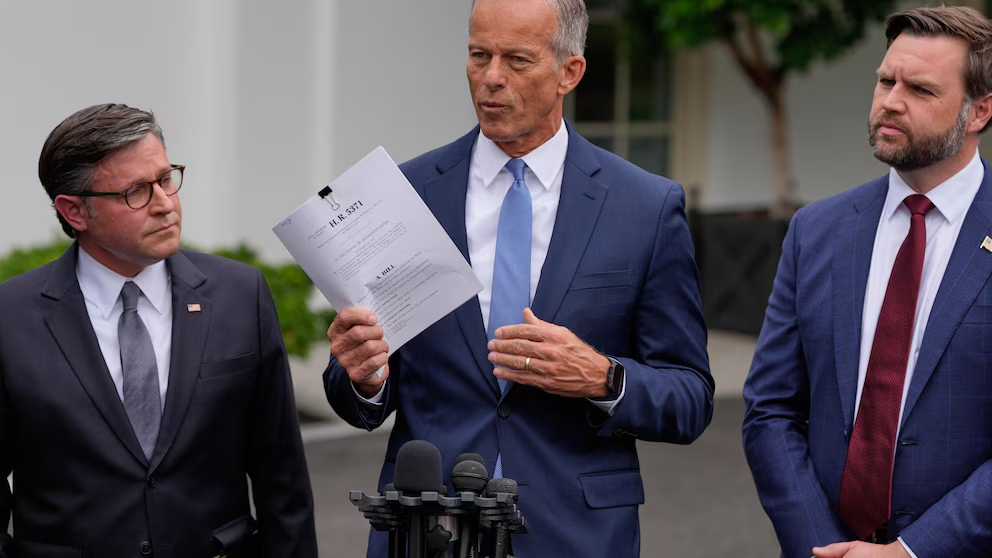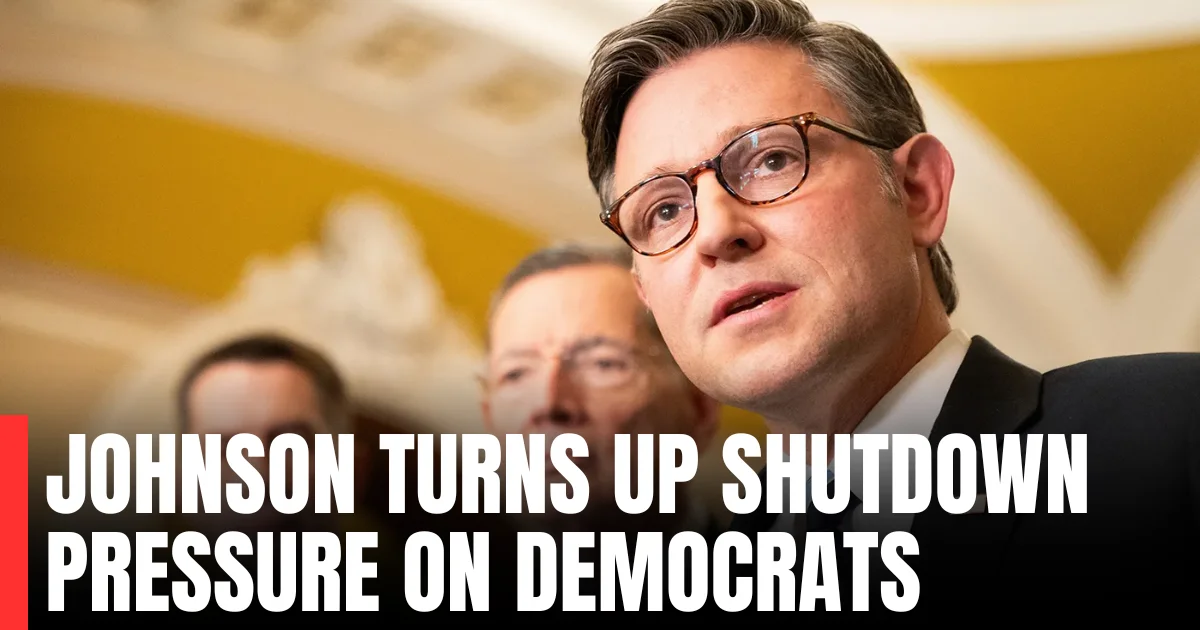House Speaker Mike Johnson pressures Democrats amid GOP unease as the government shutdown continues. Read the latest updates now!
Table of Contents
Johnson Turns Up Shutdown Pressure on Democrats as GOP Unease Grows
The U.S. government shutdown continues to unfold as House Speaker Mike Johnson (R-La.) intensifies pressure on Senate Democrats, even as some GOP lawmakers voice concerns about the political and economic fallout. Entering its tenth day, the shutdown has sparked debates over military pay, federal funding, and whether Congress is fulfilling its legislative duties.
Johnson’s strategy to force Senate Democrats into agreement is clear, but internal tensions within the Republican Party reveal the growing complexity of managing government operations during a politically charged shutdown.
Mike Johnson Holds Firm Amid GOP Concerns

House Speaker Mike Johnson remains steadfast in his approach, publicly and privately emphasizing that the House will return only when Senate Democrats stop delaying government funding agreements.
- Johnson canceled House votes this week to maintain national focus on Democratic resistance.
- He assured GOP lawmakers he would provide 48 hours’ notice before resuming votes, though no specific date was announced.
- Some Republicans, including Reps. Jay Obernolte and Julie Fedorchak, advocate for a House return next week, arguing the government cannot afford extended inactivity.
“None of that is getting done,” Obernolte reportedly said, stressing that the House has broader responsibilities beyond funding bills.
Senate GOP Faces Pressure on ‘Nuclear Option’
While Johnson guides the House, Senate Republicans face their own dilemma: whether to bypass Democratic opposition using the so-called “nuclear option” — lowering the 60-vote threshold to pass federal funding.
- Reps. John Rutherford and Tom Barrett expressed concerns that failing to act could send a poor political message, particularly regarding timely military pay.
- Johnson emphasized that all federal government operations must resume simultaneously, signaling no standalone vote for the military during the shutdown.
Military Pay and Federal Funding Concerns

Active-duty service members are considered “essential” but could miss paychecks if the shutdown continues past October 15.
- Rep. Jen Kiggans (R-Va.) urged immediate passage of a bill to ensure troops are paid.
- Johnson argues Democrats are seeking political cover while rejecting GOP funding proposals that would reopen the government through November 21.
Political Fallout and GOP Strategy
The ongoing shutdown is creating unease within the GOP, despite outward unity:
- Private calls with House Republicans reveal tensions about the political optics as the shutdown drags on.
- Johnson maintains that a recess next week is not final, reflecting the delicate balance between political strategy and legislative responsibility.
- Senate rules still require 60 votes for federal funding legislation, complicating efforts to bypass Democratic opposition.
Public Statements and Congressional Messaging
- Johnson appeared on CNN’s State of the Union, emphasizing that the House would resume normal sessions only after Democrats stop “playing games.”
- Public commentary from Rep. Kevin Kiley (R-Calif.) criticizes extended cancellations, arguing Congress must pass a timely budget.
Kiley expressed on X that the Speaker should not consider canceling House sessions for a third consecutive week.
Implications for Americans and Federal Operations
The political standoff has tangible effects:
- Federal services are limited, impacting citizens relying on government programs.
- Military families face financial uncertainty due to delayed paychecks.
- Businesses and contractors working with federal agencies may experience operational delays.
Internal and external stakeholders watch closely as both parties negotiate under national scrutiny.
FAQs – Government Shutdown & Mike Johnson
Q1: Why is Mike Johnson delaying House votes during the shutdown?
A: Johnson aims to maintain national focus on Senate Democrats’ resistance to the GOP’s funding plan while strategically timing legislative action.
Q2: What is the “nuclear option” in the Senate?
A: It is a procedural move to lower the 60-vote threshold for legislation, allowing certain bills to pass with a simple majority.
Q3: Will military personnel get paid during the shutdown?
A: Active-duty service members are essential and continue working, but delayed paychecks are possible if funding is not restored before October 15.
Q4: How long can a government shutdown last?
A: Shutdowns continue until Congress passes a funding measure; there is no fixed limit.
Q5: What are the political risks for Republicans?
A: Extended shutdowns may affect public perception, harm economic stability, and influence voter sentiment in upcoming elections.
Conclusion
As the government shutdown stretches into its tenth day, Speaker Mike Johnson’s pressure tactics reveal both strategic ambition and internal party tensions. The stakes are high for federal workers, service members, and political leadership alike.
Stay updated with the latest developments and understand how congressional decisions may affect your finances and government services.

